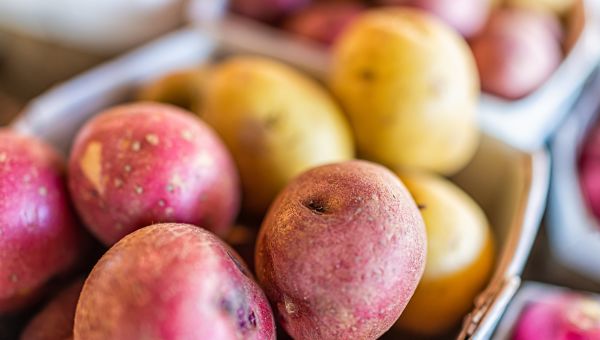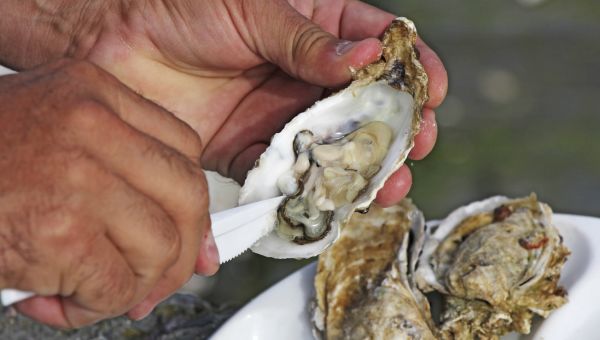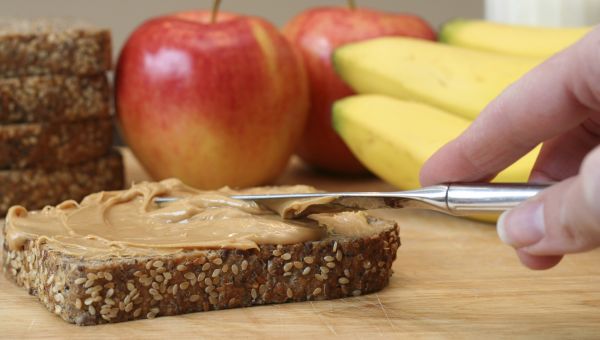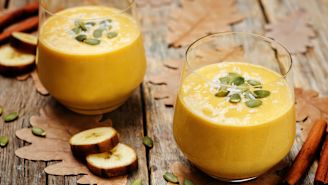6 surprising foods that can make you sick
Learn about some common sources of food-borne illnesses.
Updated on December 2, 2022

Though government regulators work hard to keep our food supply safe, foodborne illnesses are common and widespread, affecting everything from farm-grown vegetables to peanut butter. Find out which items often cause foodborne illness—and importantly, how to avoid getting sick.

Potatoes
The mealtime staple can host bacteria like E. coli, C. botulinum, and Salmonella. In fact, salmonella has been associated with about 30 percent of all reported potato-related outbreaks.
Bacteria found in potatoes can be transferred through soil, but contamination more commonly happens during preparation of potato-based dishes, like potato salad. Be sure to wash your potatoes and cook them thoroughly to kill any potentially dangerous bacteria.

Sprouts
Sprouts add protein, fiber, and crunch to dishes like stir fry, salads, and sandwiches. All good things, right? Well, only if the sprouts are grown and processed under hygienic conditions. Raw sprouts grown in unsanitary conditions can carry bacteria like E. coli and Salmonella, which are responsible for causing diarrhea, abdominal pain, and fever in mild cases, and hospitalization in more severe instances. Bacteria thrive in the seeds of the sprouts, which grow in warm and humid conditions.
Prevent illness by thoroughly washing and cooking sprouts before eating. People with weakened immune systems, children, older adults, and pregnant women should avoid eating raw or lightly cooked sprouts.

Oysters
Oysters filter feed at the bottom of the ocean, so if the surrounding water is contaminated with bacteria, the oysters can become contaminated, too. Common oyster contaminants include norovirus—which can cause stomach pain, nausea, diarrhea, and vomiting—and Vibrio vulnificus, a bacteria that leads to diarrhea and vomiting in healthy adults, but can result in blood infection in people with weakened immune systems.
To avoid oyster-related illnesses, don’t eat uncooked oysters or cooked oysters that may have been contaminated by uncooked shellfish or seafood.

Peanut Butter
Peanut butter has been the cause of several Salmonella outbreaks in recent years. One 2022 outbreak affected 21 people across 17 states, for example, while a 2009 outbreak sickened 714 people in 46 different states. Since roasting typically kills the bacteria, it’s believed that consumers likely become ill when contamination occurs after roasting.

Eggs
We’ve long been told that raw eggs can make you sick, but is it true? Yes—if the chicken is sick. If a chicken or hen is infected with Salmonella, there’s a chance the eggs will be infected, too, through feces or infected reproductive tissue.
Salmonella from eggs can be prevented with proper cooking and handling. Be sure to keep eggs refrigerated at all times, cook your eggs thoroughly (no runny yolks), and don’t leave cooked eggs unrefrigerated for more than two hours.

Leafy Greens
Runoff from nearby farms, contaminated water, or improper handling during processing can sometimes contaminate leafy greens such as lettuce and spinach. In recent years, leafy greens have been linked to several outbreaks of foodborne illnesses, including a 2020 incident in which 40 people in 19 states were infected with E. coli. Outbreaks of Salmonella, Listeria, and Cyclospora infections have also been linked to leafy greens.
Soaking, washing, and blanching your greens in boiling water may help prevent the spread of illness. Removing the outer leaves of lettuce heads may lower the risk of infection, as well.

Center for Science in the Public Interest. The Ten Riskiest Foods Regulated by the U.S. Food and Drug Administration. Accessed November 30, 2022.
Colorado State University Food Source Information. Potatoes. Last updated February 2022.
Centers for Disease Control and Prevention. Salmonella. Last reviewed November 16, 2022.
FoodSafety.gov. Food Safety by Type of Food. Last reviewed April 1, 2019.
U.S. Food & Drug Administration. People at Risk of Foodborne Illness. Current as of September 4, 2020.
USDA Food Safety and Inspection Service. Foodborne Illness and Disease. Last updated October 21, 2020.
U.S. Food & Drug Administration. Selecting and Serving Fresh and Frozen Seafood Safely. Current as of November 15, 2022.
Centers for Disease Control and Prevention. Salmonella: Salmonella Outbreak Linked to Peanut Butter. Posted July 27, 2022.
Centers for Disease Control and Prevention. Multistate Outbreak of Salmonella Typhimurium Infections Linked to Peanut Butter, 2008-2009 (FINAL UPDATE). Posted May 11, 2009.
Sithole TR, Ma YX, et al. Peanut Butter Food Safety Concerns-Prevalence, Mitigation and Control of Salmonella spp., and Aflatoxins in Peanut Butter. Foods. 2022 Jun 24;11(13):1874.
U.S. Food & Drug Administration. What You Need to Know About Egg Safety. Content current as of May 10, 2022.
Centers for Disease Control and Prevention. E. coli (Escherichia coli): Outbreak of E. coli Infections Linked to Leafy Greens. Page last reviewed December 22, 2020.
Centers for Disease Control and Prevention. Foodborne Outbreaks: List of Multistate Foodborne Outbreak Notices. Last reviewed November 17, 2022.
Centers for Disease Control and Prevention. Listeria (Listeriosis). Listeria Outbreak Linked to Packaged Salads Produced by Fresh Express. Posted March 8, 2022.
More On


video

article

slideshow


video


video
